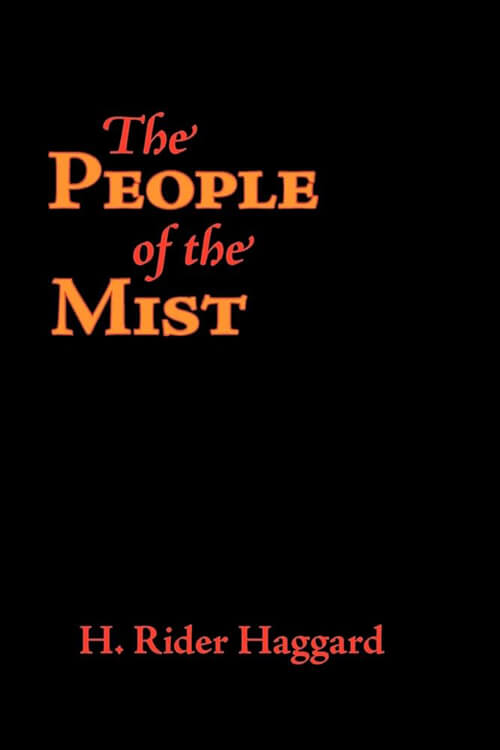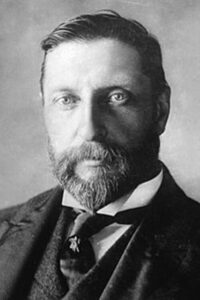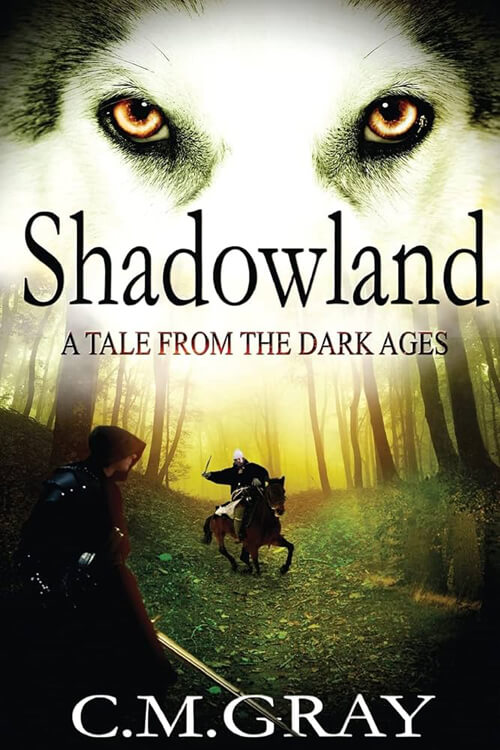
The People of the Mist
The January afternoon was passing into the night. The air was cold and still, so still that not a single twig of the naked beech trees stirred; on the grass of the meadows lay a thin white rime, half frost, half snow; the firs stood out blackly against a steel-hued sky, and over the tallest of them hung a single star. Past these bordering firs, there ran a road, on which, in this evening of the opening of our story, a young man stood irresolute, glancing now to the right and now to the left.
To his right were two stately gates of iron fantastically wrought, supported by stone pillars on whose summits stood gryphons of black marble embracing coats of arms and banners inscribed with the device Per ardua ad astra. Beyond these gates ran a broad carriage drive, lined on either side by a double row of such oaks as England alone can produce under the most favourable soil circumstances, aided by the nurturing hand of man and three or four centuries.
At the head of this avenue, perhaps half a mile from the roadway, although it looked nearer because of the eminence upon which it was placed, stood a mansion of the class that in auctioneers’ advertisements is usually described as “noble.” Its general appearance was Elizabethan, for some had forgotten Outram and had practically rebuilt it in those days. Still, a large part of its fabric was far more ancient than the Tudors, dating back, so said tradition, to the time of King John. As we are not auctioneers, however, it will be unnecessary to specify its many beauties; indeed, at this date, some of the tribe had recently employed their gift of language on these attractions with copious fulness and accuracy of detail, since Outram Hall, for the first time during six centuries, was, or had been, for sale.
Suffice it to say that, like the oaks of its avenue, Outram was such a house as can only be found in England; no mere mass of bricks and mortar, but a thing that seemed to have acquired a life and individuality of its own. Or, if this saying is too far-fetched and poetical, at the least, this venerable home bore some stamp and trace of the lives and individualities of many generations of humanity, linked together in thought and feeling by the common bond of blood.
Read or download Book
H. Rider Haggard
Sir Henry Rider Haggard KBE (22 June 1856 – 14 May 1925) was an English writer of adventure fiction romances set in exotic locations, predominantly Africa. He was a pioneer of the lost world literary genre and was also involved in land reform throughout the British Empire. His stories, situated at the lighter end of Victorian literature, remain famous and influential.
Life and career
Family
Henry Rider Haggard, generally known as H. Rider Haggard or Rider Haggard, was born at Bradenham, Norfolk, the eighth of ten children, to William Meybohm Rider Haggard, a barrister, and Ella Doveton, an author and poet. His father was born in Saint Petersburg, Russia, in 1817 to British parents.
A member of the Haggard family, he was the great-nephew of the ecclesiastical lawyer John Haggard, an uncle of the naval officer Admiral Sir Vernon Haggard and the diplomat Sir Godfrey Haggard.
Education
Haggard was initially sent to Garsington Rectory in Oxfordshire to study under Reverend H. J. Graham. Still, unlike his elder brothers, who graduated from various private schools, he attended Ipswich Grammar School. This was because his father, who perhaps regarded him as somebody who would not amount to much, could no longer afford to maintain his expensive private education. After failing his army entrance exam, he was sent to a private crammer in London to prepare for the entrance exam for the British Foreign Office, where he never sat. During his two years in London, he came into contact with people interested in studying psychic phenomena.
Writing career
After returning to England in 1882, Haggard published a book on the political situation in South Africa and a handful of unsuccessful novels before writing the book for which he is most famous, King Solomon’s Mines. He accepted a 10% royalty rather than £100 for the copyright.
A sequel soon followed, entitled Allan Quatermain, followed by She and its sequel Ayesha, swashbuckling adventure novels set in the context of the Scramble for Africa (although Ayesha’s action happens in Tibet). The hugely popular King Solomon’s Mines is sometimes considered the first of the Lost World genre. She is considered one of the classics of imaginative literature, and with 83 million copies sold by 1965, it is one of the best-selling books in history. He is also remembered for Nada the Lily (a tale of adventure among the Zulus) and the epic Viking romance Eric Brighteyes.
Legacy
Psychoanalyst Carl Jung considered Ayesha, the female protagonist of She, to be a manifestation of the anima. Her epithet “She Who Must Be Obeyed” is used by British author John Mortimer in his Rumpole of the Bailey series as the lead character’s private name for his wife, Hilda, before whom he trembles at home (even though he is a barrister with some skill in court). Haggard’s Lost World genre influenced famous American pulp writers such as Edgar Rice Burroughs, Robert E. Howard, Talbot Mundy, Philip José Farmer, and Abraham Merritt. Allan Quatermain, the adventure hero of King Solomon’s Mines and its sequel Allan Quatermain, was a template for the American character Indiana Jones. Quatermain has gained recent popularity thanks to being a main character in the League of Extraordinary Gentlemen.
In an essay about Haggard, Graham Greene stated, “Enchantment is just what this writer exercised; he fixed pictures in our minds that thirty years have been unable to wear away.” In 1965, Roger Lancelyn Green, one of the Oxford Inklings, praised Haggard as a writer of a consistently high level of “literary skill and sheer imaginative power” and a co-originator with Robert Louis Stevenson of the Age of the Story Tellers.






